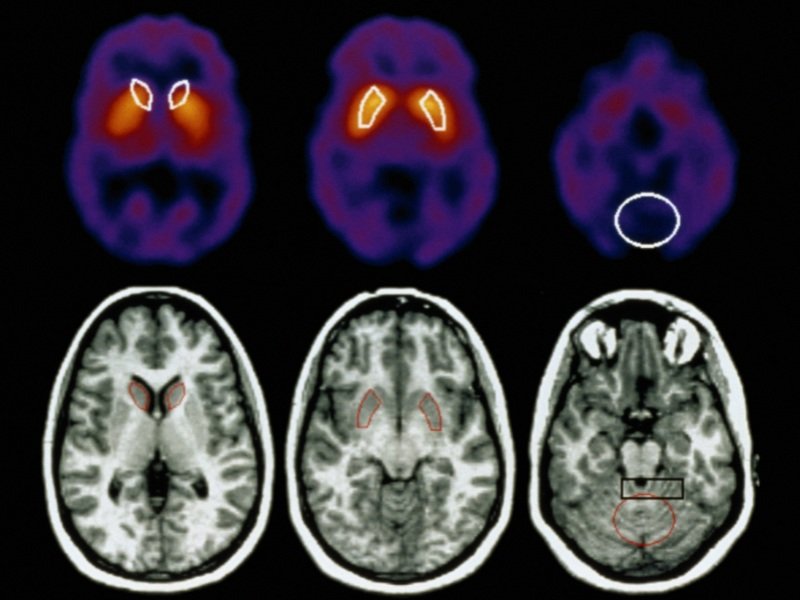OCD Education and Exposure & Response Prevention (ERP) Therapy Blog
Learn tips to stop the overwhelm of intrusive thoughts and empower yourself to get control of your life so you can experience freedom again.

Metacognition in OCD (Round 2):
One of the things that scares those of us with OCD is the possibility of a bad event occurring… But, for many with OCD, there are other things we’re afraid of (even if we don’t realize it): Our own uncontrollable thoughts and feelings. In my practice, we call concerns about our own uncontrollable thoughts and feelings “metacognitive” concerns.

Part 1: Habituation during ERP treatment: Always appreciated, never expected
In the context of OCD, and put more clinically, habituation is the process by which a person's emotional and physiological response to a “trigger” (a feared stimulus) naturally decreases over time through repeated, prolonged exposure to that stimulus (combined with abstaining from the use of avoidance or escape behaviors).

Part 3: Should I use medications to treat my OCD?
Numerous studies have demonstrated that participating in CBT / ERP causes changes in the structure and functioning of the brain.² These findings are congruent with the well-established concept of “neuroplasticity” – that the brain changes, adapts, and reorganizes in response to new experiences and new learning.³ And, when we combine this evidence with the evidence that ERP treatment of OCD is as effective as ERP + SSRI treatment for OCD, we start to have a powerful, integrated way of thinking about OCD as a psychological problem that is mediated by but not caused by the brain.

Part 2: Should I use medications to treat my OCD?
This evidence leads us to the question: If the meta-analyses show that, on average, there’s no benefit to adding a SSRI to ERP treatment, how come it’s such a common recommendation provided to OCD sufferers? I suspect that one of the reasons that combined treatment is so commonly thought to be the best choice is related to prominent OCD treatment providers recommending it.

Part 1: Should I use medications to treat my OCD?
A very common question my clients ask about OCD treatment is, “Should I use medications?” That’s what we’ll review in this post. This is the first post in a series discussing this question. This post is focused on the use of medications for the treatment of adults with OCD. In a later post in this series, we’ll review the use of medications for the treatment of pediatric (child and adolescent) OCD.

Guest Post by Megan Remer: Willingness To What? Changing How You See Treatment
Use ERP as a tool when you need it but remember that there will come a time when instead of chasing the next exposure you will need to take the insights you have gained from ERP and use them to be willing to drop the sword. To stop fighting. To go live your life. OCD can throw stuff around in the background if it wants, but maybe if you stop fighting you will find that OCD was never the threat it convinced you it was.

What I learned from one of the most famous OCD therapists in the world
Knowing what causes and maintains OCD is one thing. Knowing how to help others heal OCD is another. This search for knowledge is what led me to the work of Jonathan Grayson, probably one of the most well-known OCD therapists in the world.

Chaining in OCD Treatment
Chaining is a form of abstaining from compulsions. Chaining involves identifying a thought as an intrusive thought, allowing the thought to be present, allowing the anxious, painful feelings to be present, and abstaining from compulsions for a period of time.

Commitment in OCD Treatment
Overcoming OCD almost always requires commitment. Most of us with OCD won’t follow through with enough exposure and response prevention exercises because we feel like it. It’s rare to want to complete an exposure. We participate in ERP, not because it feels good, but because we’ve decided to take the calculated risk of participating in ERP.

ERP Part 4: Psychological Flexibility
Cognitive flexibility can include practicing deliberately participating in meaningful activities while intentionally holding intrusive thoughts in mind (and allowing the related anxious, painful feelings to be present).

ERP Part 3: Distress Tolerance
Exposure and response prevention therapy helps us overcome OCD by giving us the opportunity to develop new skills and learn from new experiences. In this post, we’ll review one of the skills developed in ERP: Distress tolerance.

Identifying Core Fears in ERP Treatment for OCD
ERP treatment involves exposures combined with response prevention. Exposures are when you deliberately confront situations that scare you and response prevention is abstaining from the safety behaviors you typically use to reduce your anxiety (e.g., checking, analyzing/ruminating, washing, avoiding, etc).

ERP Part 2: Identifying Values and Accepting Uncertainty
ERP helps us overcome OCD by helping us develop new skills and learn from new experiences. We have to establish the foundation on which all our later ERP-related work will rest. That foundation is understanding what values we care about that would motivate us to be willing to taking calculated risks and accept living with uncertainty without completing our safety behaviors.

Thought-action fusion (TAF) and OCD
Thought-action fusion (TAF) is an important part of most OCD presentations. It’s very helpful to understand what TAF is and how it relates to OCD treatment because important misunderstandings found within TAF play a central role in maintaining OCD.

Mental Compulsions and OCD
OCD always includes compulsions. Sometimes compulsions are physical behaviors, like washing your hands or asking for reassurance. Other times, the compulsions are mental. What do mental compulsions look like? How do they work? And what should we do about them? Learn more about mental compulsions in this post.

ERP Part 1: What is Exposure and Response Prevention for OCD?
ERP is the most well-researched form of treatment for OCD. But what is it? When is it used? And how does it work? This is the first of a three-post series on ERP.

What Is “Metacognition” And How Is It Related To OCD?
OCD involves “metacognitions”. What are metacognitions? How are they related to OCD? And how are they involved in OCD treatment? Learn more about this important and misunderstood subject!

Why Do I Have Intrusive Thoughts?
What are intrusive thoughts? Why do we have them? Does everyone have intrusive thoughts? What can we do to reduce them? This post reviews what intrusive thoughts are, the research surrounding them, and how this is involved in OCD treatment.

5 Tips When Selecting An OCD Therapist
As an OCD specialist, I’ve worked with so many clients who were in therapy, sometimes for years, before they realized they weren’t working with a therapist that can actually help. Here are 5 tips to help you avoid that.

Why Can’t I Stop Having Intrusive Thoughts?
Learn the reasons intrusive thoughts won’t go away and why Exposure and Response Prevention treatment is the preferred method to controlling them.

